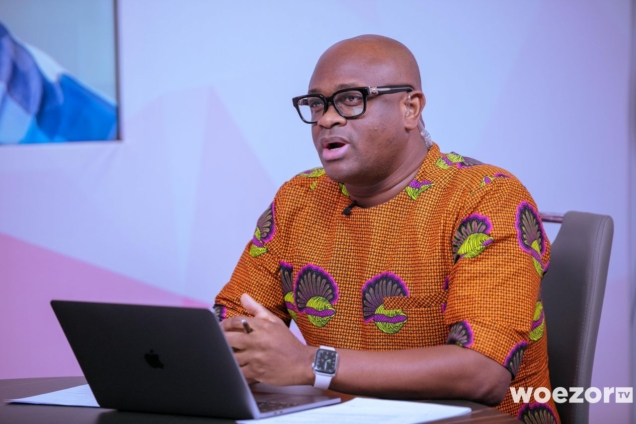In what some practising teachers and education watchers have described as a remarkable move towards promoting quality education in Ghana, former President John Mahama and the National Democratic Congress (NDC) have re-echoed their 2020 manifesto promise to stop the mandatory writing of licensure exams by teachers every four years, which teachers are required to pay for.
The Mahama decision is rooted in the belief that if teachers receive quality training and instruction during their teacher trainee years, there will be no need for periodic examination mina9ons that also put a financial burden on them.
While opponents say teacher licensing was announced and piloted in 2016, what they deliberately forgot to add is that the licensing regime as put out by the NDC administration was not structured as a periodic exam but aligned to a professional development programme.
It was aimed at licensing all newly recruited teachers before they are allowed to teach, existing professional teachers are streamlined while those who are not professional teachers will be given temporary licences for three years.
The acting Chief Inspector of the Na9onal Inspectorate Board (NIB), Dr Augus9ne Tawiah, in a Daily Graphic report of September 21, 2016, explained at a stakeholders' information session that non-professional teachers who are unable to acquire their licenses within the first three-year period would no longer be recognised as qualified teachers.
The policy, as put out by the NDC administration, was also intended to encourage continuous professional development and growth among teachers by requiring them to participate in relevant programmes and appraisals to renew their licenses. Note, not regular exams, that they have to pay for.
Critics have voiced their concerns about the Mahama and NDC proposal to stop the ongoing exams, and among them is a deputy minister for education.
It is important to thoroughly analyse these cri9cisms and the underlying mo9va9ons behind
them.
While there is a need for evaluation and measures to gauge and maintain teacher
competence, the current system of periodic licensing exams places an undue financial burden
on teachers.
By abolishing the exams and focusing on providing quality training during the years of professional teacher training in the Colleges of Education, the NDC is taking a significant step towards empowering teachers and encouraging them to invest in their professional development.
For example, the NDC, as explained by Dr Tawiah, envisioned that teachers would have to participate in professional development programmes to qualify for a renewal of their licence.
He mentioned another criterion that would qualify a teacher to be licensed as having a good appraisal report, including punctuality and regularity, effective teaching and serving on community committees.
“If you are always fighting and also if you have a criminal record and all such vices, you will lose your licence”, he added.
Teachers who have received proper training and are equipped with the necessary skills will, therefore, be better prepared to deliver high-quality education to their students.
Mr Mahama argues that the mode of instruction and practical training of student teachers must be enhanced to prepare them to graduate with exceptional and professional skills to teach.
They must after their final College exams, write a licensing exam, after which they will be licensed to teach.
Interestingly, an association of College of Education teachers says they are against the decision to stop the licensure exams, insisting that it is a good step. Are they admitting that the teachers they are producing from the Colleges are half-baked and not professionally prepared to be posted to teach in our schools?
Furthermore, the Mahama decision to stop the periodic exams aligns with international practices in education, where countries such as Finland, Singapore, and Canada have implemented similar models that prioritise the acquisition of quality skills during the teacher training programme rather than relying solely on periodic examinations.
It is crucial to acknowledge that teachers play a pivotal role in shaping the future of a nation. Their role extends beyond simply delivering curriculum; they serve as mentors and sources of inspiration to their students.
By easing the financial burden on teachers and focusing on quality training, the proposal to abolish licensure exams aligns with the broader goals of providing enhanced education opportunities for all children in Ghana.
Let me conclude by saying that the decision to abolish the mandatory licensure exams for teachers demonstrates a commitment to improving the quality of education.
By prioritising quality training during the teacher trainee phase and linking licensure to ongoing professional development, this proposal will not only empower teachers but also ensure that students receive the education they deserve.
It is our duty as a nation to support these progressive changes and work towards a brighter future for all Ghanaian children.
Latest Stories
-
Ghana’s IMF programme hit by major policy slippages and reform delays
40 seconds -
Design and Technology Institute provides Ho Technical University with an innovation hub
11 minutes -
Samdakus opposes use of ‘Kumawood’ name in new Ashanti film group
28 minutes -
Debby Sway’s ‘Searching’ gaining momentum weeks after release
31 minutes -
Motorsport Ghana and British High Commission host thrilling F1 Grand Prix watch party
33 minutes -
Appietus relocates to UK; sets up new studio
41 minutes -
We have moved from policy to implementation- Mahama
43 minutes -
Eni Ghana submits Declaration of Commerciality for Eban-Akoma discoveries
45 minutes -
Bawumia leads NPP delegation to commiserate with late Ernest Kumi’s family
47 minutes -
Mahama charges GoldBod taskforce to serve with integrity and discipline
52 minutes -
UEW Dean rescues abandoned school block at Tampion Kukuo
57 minutes -
Tema Port undergoes major infrastructure upgrade to support 24-hour operations
58 minutes -
Nkwanta South MCE urges factions to choose peace through dialogue, not guns
1 hour -
Cardinal Turkson issues powerful call for collective nation-building
1 hour -
Equatorial Coca-Cola Bottling Company acquires Voltic and West African Refreshments Limited
1 hour

